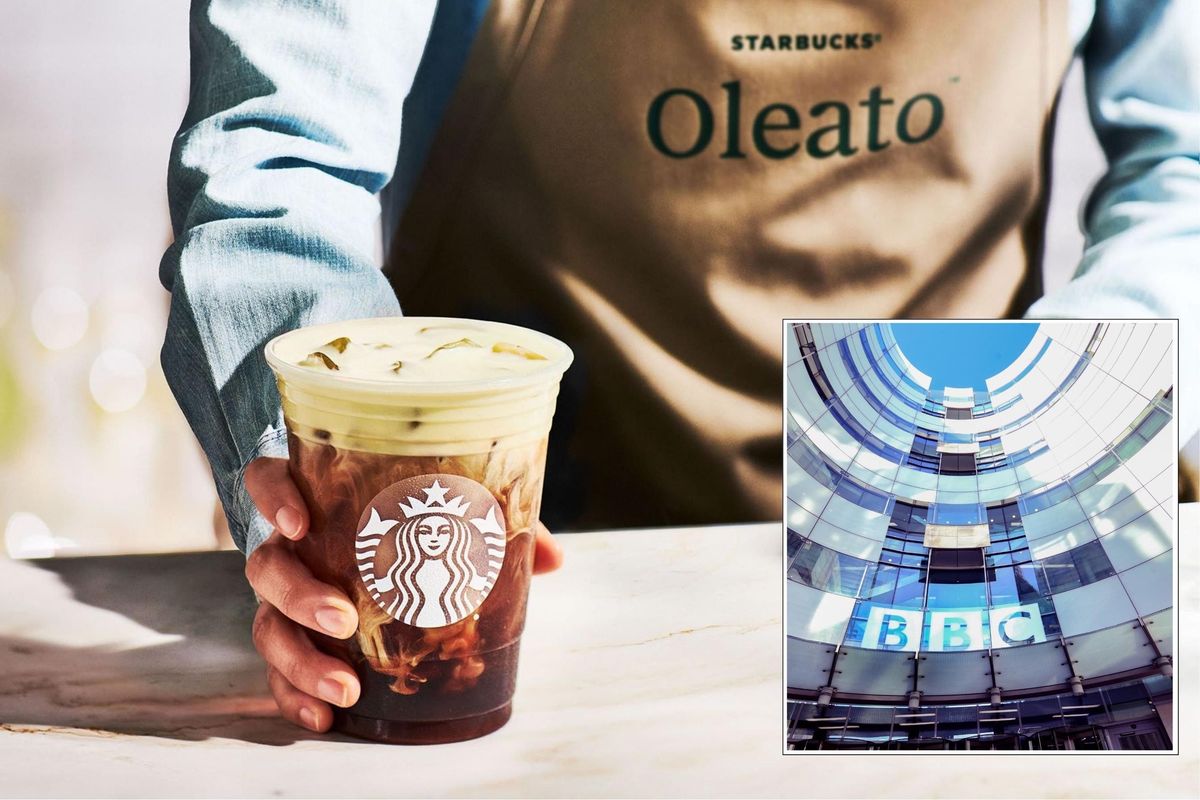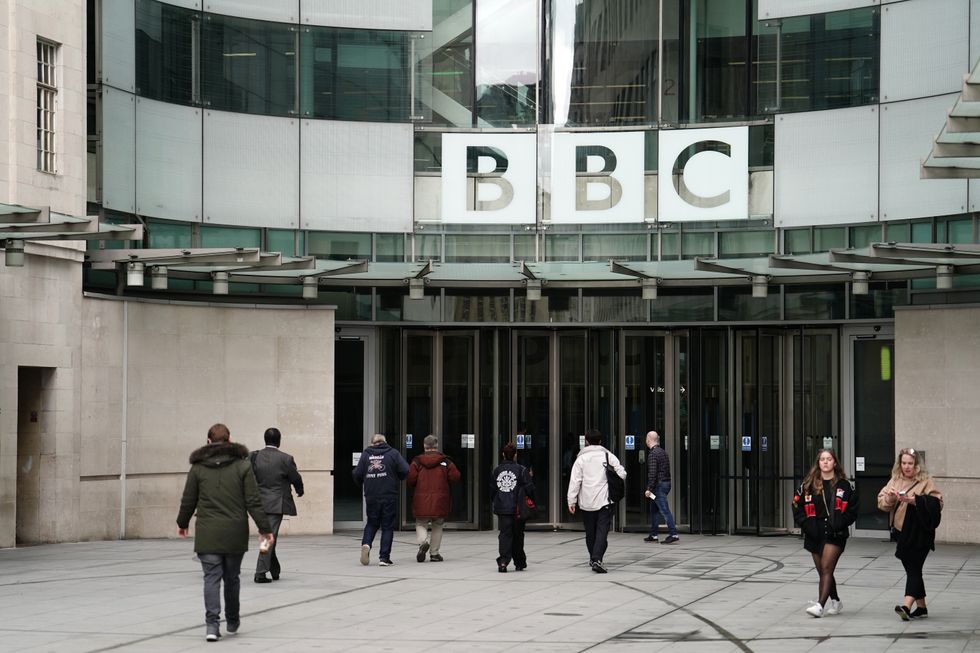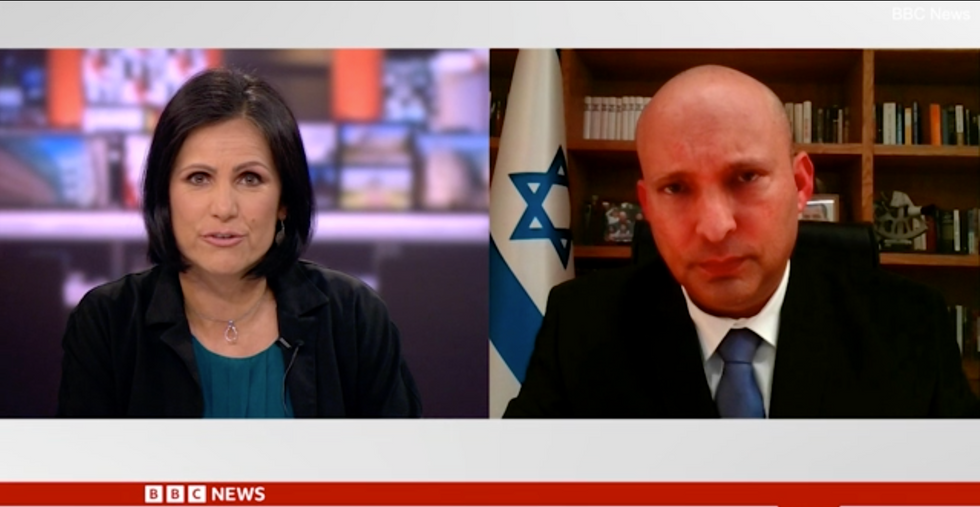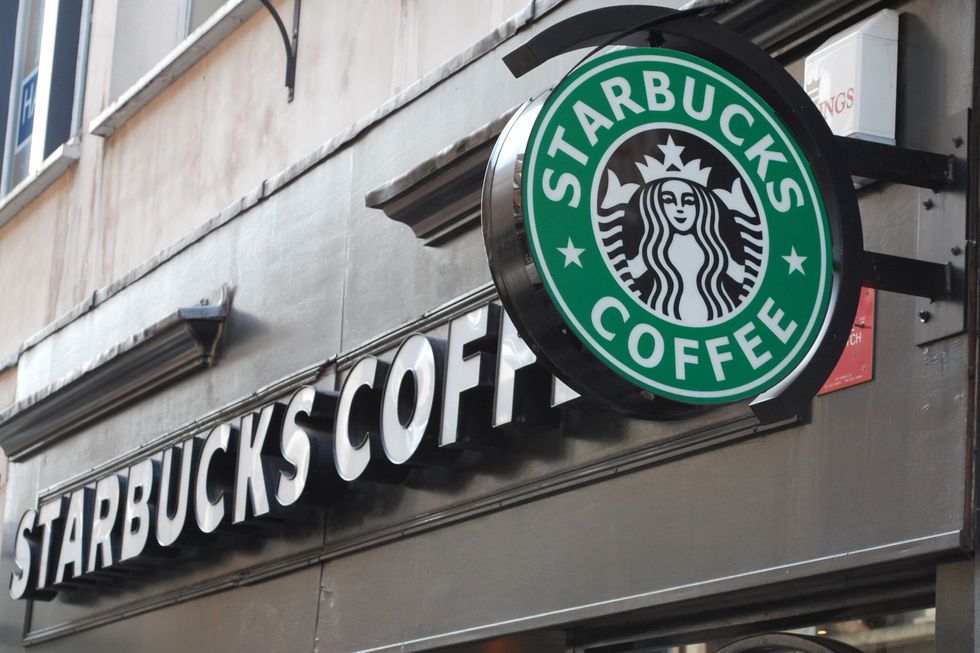
BBC News Channel’s reporting of the Starbucks’ olive oil coffee has been judged by its board to have strayed into outright promotion.
The channel has received a slap on the wrist by the editorial standards board for ‘lingering and repetitious’ references to Starbuck’ branding and shedding the brand in an overly positive light.
The BBC’s Executive Complaints Unit (EUC) upheld a complaint from a bemused viewer, to likened the coverage of the Starbucks’ Oleato coffee to “blatant promotion.”
Oleato featured in a report on the channel on February 23.

After an investigation, the complaints unit concluded: “In the ECU’s judgement, the frequent appearances on screen of the Starbucks’ name and logo were beyond what was editorially justifiable in the context.”
The ECU pinpointed the “commentary from the reporter which tended to cast the product in a favourable light, went too far towards creating the impression of endorsement or promotion the Guidelines caution against”.
Being a publicly funded broadcaster, the BBC is subject to strict prohibition of advertising or promotion.
As the BBC is funded by the licence fee, journalists on screen and online must be careful not to stray into promoting goods or services.

In this instance, the ECU report found that the news channel had gone too far, escalating the issue to BBC management and leading to a discussion with the journalists involved.
It comes as the BBC were pressured to issue an apology for ‘inappropriate language after saying ‘Israeli forces are happy to kill children.’
Anjana Gadgil made the comments while she was speaking to the country's former prime minister, Naftali Bennett.
Following the incident, Gadgil appears to have deleted her social media profiles and a BBC spokesperson has described her language as "inappropriate" and "not phrased well".

Lord Melvyn Bragg, who hosted Radio 4’s In Our Time for a quarter of a century, has spoken out recently over the BBC’s desire to portray working-class people as “miserable, broke or in despair.”
No stranger to controversy themselves, Starbucks were recently ordered to pay $26million in compensation to an employee in the US ‘for being white.’
A court found that Starbucks fired a white manager as a ‘sacrificial lamb’ to appease race row in 2018.
More recently, Starbucks’ iced coffee has been found to contain more sugar than a Mars bar or can of Coke.
A Starbucks caramel Frappuccino with semi-skimmed milk contains 48.5 grams of sugar, well above the 30 grams recommended daily sugar intake.
from GB News https://ift.tt/rSCsh10

BBC News Channel’s reporting of the Starbucks’ olive oil coffee has been judged by its board to have strayed into outright promotion.
The channel has received a slap on the wrist by the editorial standards board for ‘lingering and repetitious’ references to Starbuck’ branding and shedding the brand in an overly positive light.
The BBC’s Executive Complaints Unit (EUC) upheld a complaint from a bemused viewer, to likened the coverage of the Starbucks’ Oleato coffee to “blatant promotion.”
Oleato featured in a report on the channel on February 23.

After an investigation, the complaints unit concluded: “In the ECU’s judgement, the frequent appearances on screen of the Starbucks’ name and logo were beyond what was editorially justifiable in the context.”
The ECU pinpointed the “commentary from the reporter which tended to cast the product in a favourable light, went too far towards creating the impression of endorsement or promotion the Guidelines caution against”.
Being a publicly funded broadcaster, the BBC is subject to strict prohibition of advertising or promotion.
As the BBC is funded by the licence fee, journalists on screen and online must be careful not to stray into promoting goods or services.

In this instance, the ECU report found that the news channel had gone too far, escalating the issue to BBC management and leading to a discussion with the journalists involved.
It comes as the BBC were pressured to issue an apology for ‘inappropriate language after saying ‘Israeli forces are happy to kill children.’
Anjana Gadgil made the comments while she was speaking to the country's former prime minister, Naftali Bennett.
Following the incident, Gadgil appears to have deleted her social media profiles and a BBC spokesperson has described her language as "inappropriate" and "not phrased well".

Lord Melvyn Bragg, who hosted Radio 4’s In Our Time for a quarter of a century, has spoken out recently over the BBC’s desire to portray working-class people as “miserable, broke or in despair.”
No stranger to controversy themselves, Starbucks were recently ordered to pay $26million in compensation to an employee in the US ‘for being white.’
A court found that Starbucks fired a white manager as a ‘sacrificial lamb’ to appease race row in 2018.
More recently, Starbucks’ iced coffee has been found to contain more sugar than a Mars bar or can of Coke.
A Starbucks caramel Frappuccino with semi-skimmed milk contains 48.5 grams of sugar, well above the 30 grams recommended daily sugar intake.




0 Comments
Don't share any link